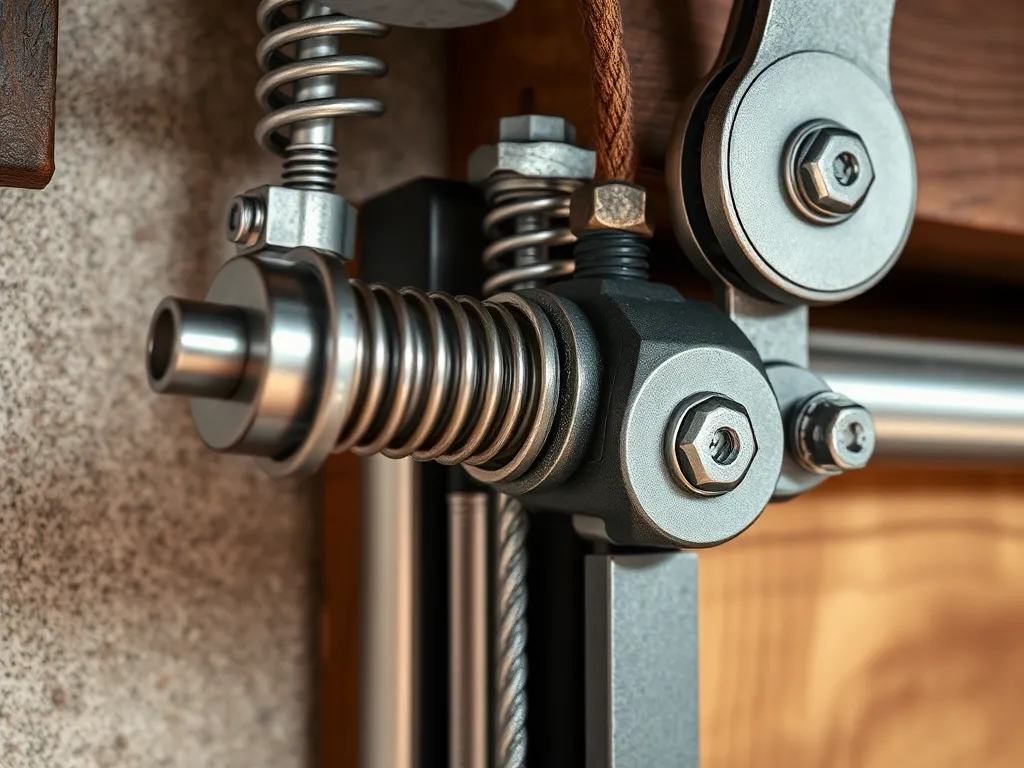Why Proper Tension Adjustment is Crucial for Garage Doors

All You Need to Know About Garage Doors
Garage doors are essential components of modern homes, providing security and convenience for vehicle storage and access to the home. They come in various styles and materials that not only complement the home’s exterior but also serve practical functions. Proper understanding of garage doors is crucial for homeowners to maintain their longevity and efficiency.
The mechanics behind garage doors are complex, involving various components such as springs, tracks, and openers. These components work in harmony to ensure smooth operation. Garage doors also require regular maintenance and occasional repairs, underscoring the necessity for homeowners to have a foundational knowledge about their operation.
In addition to functionality, garage doors add to the aesthetic appeal of a home. With options ranging from traditional wooden doors to contemporary steel and glass designs, homeowners can choose garage doors that enhance their property’s curb appeal. The selection of the right garage door can increase a home’s value and offer improved energy efficiency.
Ensuring proper door operation is crucial for maintaining the longevity and functionality of your garage door system.
Safety is a primary concern associated with garage doors. Understanding how to operate garage doors safely and recognizing potential hazards can prevent accidents. Proper installation and regular maintenance are essential to keeping garage doors operating smoothly and safely.
investing in innovative solutions can significantly enhance energy efficiency in your home, ultimately lowering utility bills.
Garage doors are more than just an entry and exit point. Their significance encompasses security, aesthetics, and functionality, making it vital for homeowners to stay informed about the different aspects of garage doors and their maintenance needs.
Understanding Garage Door Tension
Garage door tension adjustment refers to the process of modifying the tension in the springs that operate the garage door. Proper tension is crucial for the door to function smoothly and safely, and it can be affected by wear and tear over time. Adjusting the tension can help ensure that the door opens and closes properly, without undue strain on the mechanism or risk to safety.
Understanding the factors that affect spring lifespan can help you mitigate costs and ensure your garage door operates smoothly.
The tension in the garage door affects its operation significantly. Insufficient tension can lead to a door that is too heavy to lift manually, while excessive tension may cause the door to slam down unexpectedly. Both situations present safety concerns and can lead to premature wear on the door's components.
Improper tension can pose significant safety risks. A garage door that is not correctly tensioned can unexpectedly fall or lead to malfunction of the door opener. This can cause injury or damage to property, highlighting the importance of keeping the correct tension settings for optimal safety and functionality.
Factors Influencing Tension Adjustment
Different types of garage doors have unique tension needs based on their weight and design. For instance, sectional doors typically require more precise tension adjustment compared to lighter tilt-up doors. Understanding the specific tension requirements for the type of garage door is essential for effective maintenance.
The various components of a garage door system, such as the springs, rollers, and tracks, all play a role in how tension is managed. Damaged or worn parts can affect how tension is distributed, leading to potential misalignment or inefficient operation, making regular inspection crucial.
Environmental factors can also influence garage door tension. Changes in temperature, humidity, and even the regularity of usage can impact how the door operates. Consequently, regular checks are advisable to ensure tension settings are adequate throughout different seasons and conditions.
Signs of Incorrect Garage Door Tension
There are several common symptoms of poor garage door tension. These may include a door that closes too quickly, does not stay open, or requires excessive effort to open. Listening for unusual noises during operation can also indicate tension issues.
To identify if your garage door needs adjustment, observe its operation closely. Notice if the door hangs unevenly, responds slowly, or exhibits jerky movements. Frequent need for manual assistance during opening or closing can also be a clear sign of inadequate tension.
Neglecting tension issues can have significant consequences, including equipment damage or increased likelihood of accidents. Unexpected door movements can cause personal injury or damage vehicles parked closeby, thereby emphasizing the need for timely adjustments and repairs.
The Adjustment Process
Adjusting garage door tension should be approached with caution. Start by disengaging the door from the opener and testing its balance. If the door stays in place when partially open, the tension is adequate. If not, adjustments can be made using a wrench to turn the adjustment screws. Ensure even adjustments to maintain balance.
Tools required for proper tension adjustment typically include a ladder, socket wrench, and safety goggles. Having these ready before beginning the adjustment process can save time and ensure safety. It's important to wear protective gear due to the potential risks of working with high-tension springs.
If you are uncertain about adjusting the tension yourself or if there are significant issues with the garage door's operation, it's best to call a professional. Expert technicians can effectively diagnose the problems and make necessary adjustments, eliminating the risks associated with DIY repairs.
Maintenance for Optimal Tension
Regular checks for garage door tension should be part of routine maintenance. Homeowners should visually inspect the door and its components, watching for signs of wear, rust, or issues with the springs that may affect tension.
To maintain proper tension settings, it's recommended to lubricate moving parts regularly, tighten loose screws, and replace worn components promptly. Following these tips will help keep the garage door functioning smoothly and enhance its longevity.
The long-term benefits of proper tension adjustment include increased safety and efficiency, reduced wear on the door’s components, and prolonged service life. By remaining attentive to tension needs, homeowners can ensure that their garage doors operate seamlessly for years to come.
